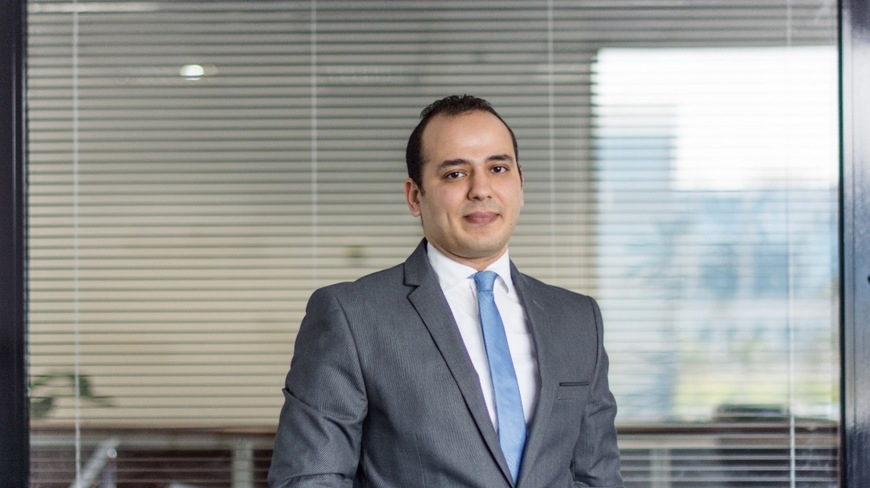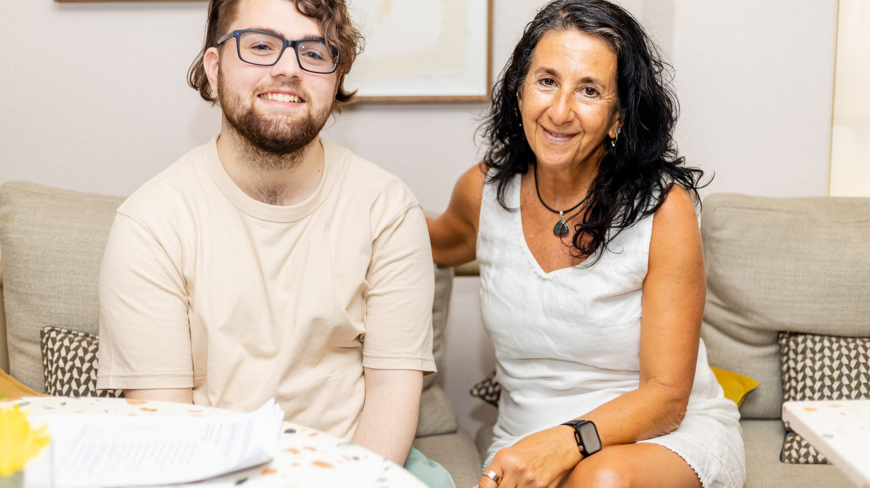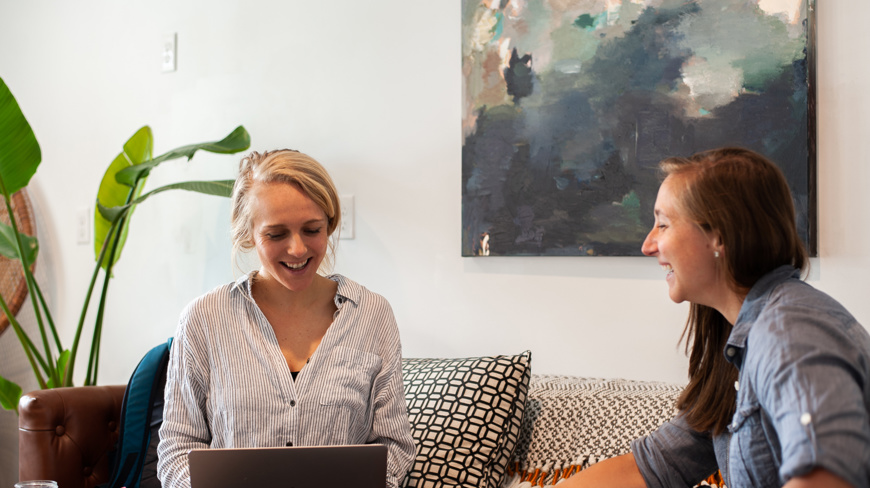The Second Act: After a Successful Exit, One Entrepreneur Embraces the Discomfort of Reinvention
August 21, 2025
Published in:
Rather than slow down after selling her thriving biofuel business, EO San Diego’s Jennifer Case dove headfirst into a new AI venture and has leaned into the “pain” of launching a new startup.
 Jennifer Case (EO San Diego)
Jennifer Case (EO San Diego)
As Jennifer Case signed the paperwork to sell New Leaf Biofuel in April 2024, she inked the final few words of a chapter that had defined nearly two decades of her life. Starting in 2006, she built an eco-friendly biodiesel powerhouse that generated nearly $100 million in revenue and became a fixture in California’s renewable energy sector. Along the way, she had testified before the U.S. House of Representatives’ Energy and Commerce Committee and the Environmental Protection Agency and held leadership positions with notable industry groups.
She packed a lifetime’s worth of achievements into those 18 years. Once the ink had dried on the sale, though, Jennifer didn’t step away to rest. Instead, she felt the tug to start fresh.
“It is painful to build a business. It is painful to put yourself out there. It is painful to redefine yourself when you have been known for one thing,” says Jennifer, a 13-year Entrepreneurs Organization (EO) member through EO San Diego. “But being in a place that is uncomfortable is where you are going to grow the most.”
Her new venture, Law Tech AI, marries her background as an attorney with her experience as a founder. (Jennifer worked as a lawyer for five years before co-founding New Leaf.) The company helps lawyers adopt artificial intelligence responsibly, aiming to equip them with both the tools and training they need to integrate AI into their practice without jeopardizing accuracy or legal ethics. For Jennifer, the mission is as personal as it is professional: She wants lawyers to reclaim valuable time, reduce burnout, and deliver better — and more affordable — service to those who need it most.
An Accidental Entrepreneur
Jennifer never planned to become a founder. After law school, she practiced for five years at prominent defense firms. Entrepreneurship entered her life by chance when a friend asked for legal help as she launched a biofuels company. “I was just coming in to help with the legal work, but I got really fascinated by what we were doing,” Jennifer recalls. “I ended up deferring my student loans and joining her in the startup.”
Two years later, that friend left the company as the global financial crisis hit. New Leaf’s biodiesel provided a cheaper, cleaner alternative to traditional diesel, but when diesel prices cratered along with the economy, Jennifer suddenly found herself at the helm of a young company with no clear path forward.
“The bottom fell out of the market, and all of a sudden we were upside down,” she says. “We started off on really shaky ground.”
She briefly considered returning to law, but a recruiter told her there were no jobs to be found as firms nationwide slashed legal teams to cut costs amid the downturn. That conversation crystallized her decision to stay the course. “I thought, ‘Well, I better make this thing work,’” Jennifer says. “So, I dug in and figured it out. I took that company from barely making any fuel to quadrupling our production over the next decade.”

In 2012, Jennifer testified at a U.S. House of Representatives Energy and Commerce Committee hearing on ensuring market integrity in the renewable fuels sector.
Finding a Community
As she fought to stabilize and grow New Leaf, Jennifer discovered Entrepreneurs’ Organization (EO). She joined EO San Diego in 2013 just as her bonds with New Leaf’s founding partners were fracturing. They wanted to pull the business in different directions: some wanted to downsize, others wanted to sell, and Jennifer was focused on growth.
Her Forum quickly became an invaluable sounding board and support system: “Nobody else quite understood what it was like when you almost won’t make payroll,” she says. “You can talk to friends or talk to a family member about it, but only another business owner, another founder, would understand how it rips at you. That was the support I got when I joined EO.”
Over the years, EO helped her navigate the partnership breakup, the sale of shares to a strategic partner, and her eventual full exit from the company. In particular, she found kinship and support among fellow women in EO San Diego, which holds quarterly events that focus on common issues and challenges women entrepreneurs face. “Talk about feeling alone as a founder and CEO of a business when you are also a working mom,” she says. “That is something not every entrepreneur necessarily understands. We have made a real impact on each other.”
A Bold New Mission
After she sold New Leaf, a former colleague called to ask if she would consider returning to practice law. Instead, having become an early AI adopter thanks to her Forum, she asked him what his firm was doing to leverage the emerging technology. His answer: absolutely nothing.
That conversation revealed a need — and a gap that, after some introspection, Jennifer felt uniquely qualified to fill. Drawing on her legal training, entrepreneurial background, and curiosity that had led her to tinker with technology, she began teaching friends how to experiment with AI tools. Those informal lessons evolved into a business.
“Lawyers are slow adopters of tech,” she says. “But with artificial intelligence, they really do not have much of a choice. It is here. It is not the future — artificial intelligence is now.”
Her approach emphasizes practicality: auditing workflows, testing tools before adopting them, and focusing on measurable results rather than flashy software. She frames AI not as a threat to lawyers’ jobs but as a means of removing time-consuming drudgery and enabling them to focus on higher-value strategic work. For Jennifer, the moral imperative is just as strong as the business case: AI could offer more affordable basic legal services to the people who need it most rather than demanding that they fork over hundreds per hour.

“It is painful to build a business. It is painful to put yourself out there. It is painful to redefine yourself when you have been known for one thing. But being in a place that is uncomfortable is where you are going to grow the most.”
- Jennifer Case (EO San Diego)
“The big goal is accelerating justice for all,” Jennifer says. “AI has the power to bridge and close the justice gap for people who cannot afford to hire a lawyer. Notoriously, people who are in lower income positions in marginalized communities are disadvantages: If they are a tenant and they are unfairly kicked out of their home, they probably have a good case if they could hire a lawyer and sue their landlord, but they do not have access to that kind of justice. I think that we are going to be able to deliver to that tenant the ability to get the justice that they need without having to spend what they would have to spend on the lawyer.”
After two decades spent navigating the intricacies of the renewable energy space, Jennifer has plunged into the uncertainty of another startup — an environment she knows is equally exhilarating and exhausting. She has taken on a few clients and now must decide whether to build the business around educating others about how to implement AI into their legal services or go all in, raise money, build a team, and grow another thriving business in an emerging sector that would be ripe for acquisition in the future. “Classic entrepreneurial fork in the road,” she quips.
For Jennifer, growth has always come from those inflection points — when she chose to stay in biofuels instead of retreating back to law, when she took the wheel as her business partner jumped ship, and now, as she works to convince peers in the legal profession to embrace a technology that could redefine it.
“As I am sitting here today in a startup and am the most uncomfortable I have been in 15 years,” she says, “it makes me feel like this must be exactly where I am supposed to be.”
Interested in becoming an EO member like Jennifer? Learn more here.
 More Entrepreneurial Journeys
More Entrepreneurial Journeys

How One Entrepreneur Found Perspective and Persevered Through a Devastating Diagnosis
Successful attorney and Entrepreneurs’ Organization member Mohamed Hashish endured years of surgeries, setbacks, and uncertainty — emerging with a renewed purpose to lead, mentor, and champion others facing adversity.

Neurodivergent Teen Started a Company that Transformed His Pain into Purpose
Long chastised by peers for his differences, Kai Seymon’s fidget tool business became a seven-figure success that earned him recognition on the world stage when he was runner-up at this year’s Global Student Entrepreneur Awards.

How Two College Teammates Navigated the Shift from Friends to Co-founders
Hannah Lee (EO Nashville) and Jess Vossler (EO Columbus) forged a lasting bond on the lacrosse field that they parlayed into a business built on shared values and ambitions.
